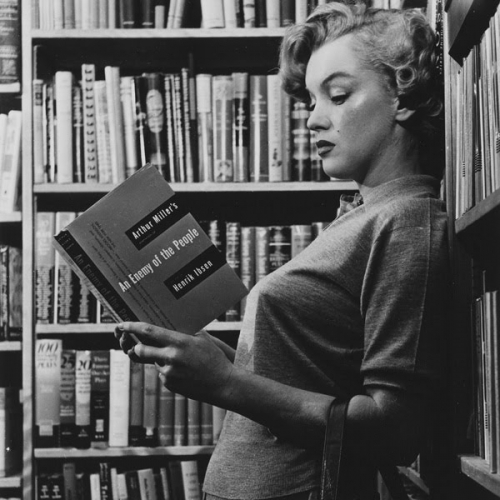“I don’t want to read a book in translation,” my friend declared. “It’s not as good as reading the original.”
I put down my beer with a thud. I couldn’t even reply. The comment seemed to confirm a depressing statistic I had read in The Economist: “When it comes to international literature, English readers are the worst-served in the Western world. Only 3% of the books published annually in America and Britain are translated from another language; fiction’s slice is less than 1%.”
I wanted to pull out a copy of Anna Karenina—sorry, Анна Каренина—and show my friend the Cyrillic text. I ought to have said, “You mean reading a book you can’t understand is better than reading one you can?” Or, “I can barely correct my brother’s Spanish grammar, and I sure can’t read New Finnish Grammar unless it’s in English.”
Fortunately (or not), I had the self-restraint to change the subject.
America, go to our bookstores and look at the “Classics” sections. Homer,Cervantes, Dante, Flaubert, Borges. We owe our literary history to these authors and the intermediaries—Robert Fagles, Edith Grossman, Allen Mandelbaum, Lydia Davis, Andrew Hurley—who have carried the texts to our Anglophone shores.
It doesn’t matter how many MFA programs we have. It doesn’t matter how brilliant our living writers might be. Our own literature would still be barren without those foreign incursions. Even our earliest English classic isBeowulf, and I read it in Seamus Heaney’s resounding, earthy translation. Ask a budding writer if they’ve read Bolaño, and they’ll most likely nod enthusiastically, half-aware that Natasha Wimmer made possible their enjoyment of The Savage Detectives and 2666.
Among the alarmingly low number of publishers who will do books from other countries, we have Open Letter, Europa, Other Press, and a new player: Peirene Press. The wonderful thing about Peirene is that, although it publishes exclusively literature in translation, it focuses first and foremost on sharing a great story with each book. Their novellas take as little time to read as it does to watch a film, and the publisher holds events to discuss each book. She's a salonniere, and she's a success. She’s actually getting people to read something they might avoid if they knew it was “foreign.”
America, there’s a new direction for us. We don’t need relatable authors; we need strange and wonderful and new stories. I’d rather talk about good books than nice authors any day. Let’s skip the usual crop of MFA workshop pieces about the Brooklyn Promenade.
America, let’s publish Icelandic writers (Steinar Bragi!) and Argentinian writers (Pola Oloixarac!) and Mauritanian writers (Ananda Devi!) and make them worth reading. I wouldn’t know where on the map Iran is, or why I’d want to visit, unless I’d read Censoring an Iranian Love Story. I want to read something nobody in America would risk writing. America, let’s open our eyes to the rest of the world.
America, let’s make foreign literature sexy.
image credit: redsurproducciones.blogspot.com





 A Black Balloon Publication ©
A Black Balloon Publication ©